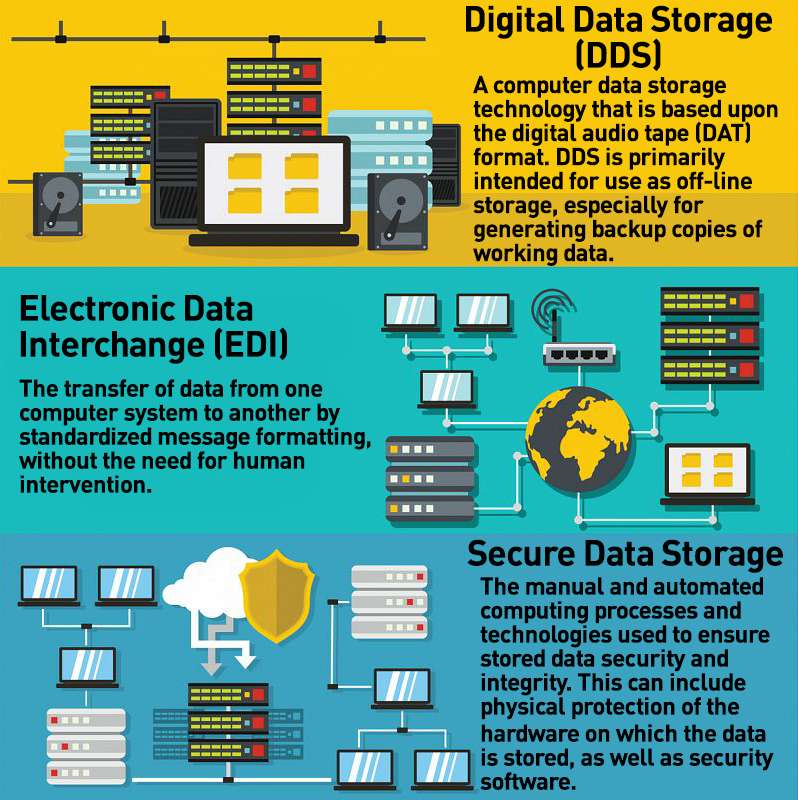Data Destruction Solutions: A Key Element in Your Cyber Security Method
Data Destruction Solutions: A Key Element in Your Cyber Security Method
Blog Article
The Important Nature of Information Damage in Upholding Computer Safety And Security Services and Protecting Versus Unauthorized Access
In an era where information breaches and identification theft are increasingly widespread, the importance of efficient data devastation can not be overemphasized. Organizations needs to identify that the failing to appropriately deal with sensitive information poses not only legal and financial dangers yet additionally a prospective erosion of customer depend on. Numerous approaches, from data wiping to physical destruction, offer as crucial safeguards against unauthorized access. Understanding the implications of information destruction methods and conformity with regulations increases necessary questions about the adequacy of existing approaches and their long-lasting viability in the face of progressing threats.
Value of Data Devastation
In a significantly digital globe, the importance of data devastation can not be overemphasized. As organizations accumulate substantial amounts of sensitive info, the potential repercussions of falling short to properly handle and get rid of of that information become progressively serious. Information violations, identity theft, and corporate espionage posture significant risks, emphasizing the necessity of efficient data damage techniques.

Furthermore, as technology progresses, so too do the approaches whereby harmful stars seek to make use of delicate information. Organizations has to remain watchful and aggressive in their data devastation methods to secure against these advancing dangers. By prioritizing data devastation, companies not just shield their possessions but additionally foster depend on amongst clients and stakeholders, demonstrating a dedication to responsible data monitoring and protection techniques.
Techniques of Effective Information Devastation
To ensure the complete and irreversible damage of delicate information, companies can utilize a selection of reliable approaches customized to their details needs. One of the most common methods is data wiping, which includes using specialized software to overwrite existing data multiple times, making recuperation virtually impossible. This is particularly useful for solid-state drives and hard drives, where standard removal techniques are inadequate.
Another effective method is degaussing, which utilizes strong magnetic fields to interrupt the magnetic domains on storage media, providing the information irretrievable. This technique is specifically fit for magnetic storage space gadgets, such as tape drives and hard drives.
Physical devastation is likewise a practical option, involving the shredding, squashing, or incineration of storage space tools. This approach assurances that data can not be recouped, making it ideal for companies managing extremely delicate info.

Conformity With Information Security Rules
Organizations must not only concentrate on effective data destruction techniques yet additionally guarantee conformity with data security regulations that regulate just how sensitive info is taken care of and thrown away. Abiding by these policies is necessary for keeping and safeguarding personal information consumer trust. Rules such as the General Data Protection Guideline (GDPR) in the European Union and the Wellness Insurance Policy Mobility and Accountability Act (HIPAA) in the USA enforce stringent standards on data administration, that include demands for the safe disposal of sensitive info.
To achieve compliance, organizations must implement comprehensive data destruction plans that line up with these legal frameworks. This consists of identifying information that needs damage, establishing protocols for secure methodsâEUR" such as shredding physical media or using software that meets industry criteria for information wipingâEUR" and preserving comprehensive records of destruction tasks. Normal audits must be carried out to make sure adherence to these plans and to determine any possible areas for improvement.
Failing to abide by data defense guidelines can result in significant lawful ramifications, consisting of large fines and damages to an organization's reputation. Incorporating compliance into information destruction methods is not only a legal commitment yet likewise an essential element of a durable information safety and security approach.
Effects of Poor Information Handling
Poor data handling can cause severe repercussions that prolong past immediate Continued functional troubles. Organizations may face considerable economic losses due to information violations, which typically cause costly remediation initiatives, lawful costs, and regulatory fines. These monetary effects can impede and stress sources development, inevitably affecting an organization's bottom line.
Additionally, inadequate data handling can drastically damage an organization's reputation. Companions, clients, and stakeholders might shed count on an entity that fails to safeguard sensitive info, resulting in reduced client loyalty and potential loss of business opportunities. This disintegration of trust fund can take years to rebuild, if it can be recovered whatsoever.
Furthermore, organizations could face lawful implications arising from non-compliance with information defense laws. Such offenses might lead to examinations and charges, intensifying the financial burden and more tainting the organization's image.
In the world of cybersecurity, inadequate information monitoring methods can create susceptabilities that make systems a lot more vulnerable to unauthorized accessibility and cyberattacks. Eventually, these consequences underscore the crucial relevance of carrying out durable information managing procedures to guard sensitive information and keep organizational honesty.
Ideal Practices for Secure Data Disposal


Firstly, data must be identified according to its sensitivity. Sensitive info calls for extra rigorous disposal methods, such as shredding physical files and using innovative software for digital data wiping. Utilizing licensed information devastation solutions makes certain read this conformity with sector regulations and standards.
Secondly, organizations ought to carry out an information disposal policy that mandates routine audits. This policy must describe the treatments for information retention and devastation, ensuring that obsolete data is thrown away immediately and safely. Educating staff members on these methods is vital to promoting a culture of protection understanding.
Lastly, keeping comprehensive records of disposed information improves responsibility and provides a clear audit route. This paperwork ought to include the kind of data damaged, the approach used, and the day of disposal.
Verdict
Adopting robust techniques such as information wiping, degaussing, and physical damage, along with compliance with guidelines like GDPR and HIPAA, is essential for securing delicate information. Overlooking correct websites information disposal practices can lead to serious effects, consisting of data breaches and legal repercussions.
In a period where information violations and identity theft are significantly common, the value of effective data destruction can not be overstated. data destruction. Data breaches, identity theft, and business reconnaissance posture substantial risks, highlighting the requirement of reliable information devastation practices
Compliance with policies such as GDPR and HIPAA mandates that organizations carry out rigid information security procedures, consisting of the safe and secure devastation of information at the end of its lifecycle.
By focusing on data damage, business not only safeguard their possessions however also foster count on among clients and stakeholders, showing a dedication to accountable data management and safety practices.
Organizations should not only concentrate on efficient data destruction methods yet additionally make certain conformity with information security policies that govern just how delicate info is handled and disposed of.
Report this page